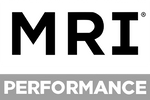Morning vs. Night Training: What Science Says About Strength, Hormones & Recovery
Posted by Medical Research Institute on 29th Aug 2025
Are early workouts killing your gains, or are PM lifts wrecking your sleep?
If you've ever debated whether to set your alarm for a pre-dawn grind or hit the weights after work, you're not alone. The war between morning and evening training warriors has raged for years. Some swear by fasted sun-up sessions, while others insist that after-hours lifts are when true strength kicks in.
So what does the science actually say? More importantly, how does training time affect your strength, hormones, recovery, and supplement strategy?
Let's break down the circadian rhythms, performance metrics, and smart supplement timing so you can train in sync with your biology, not just your schedule.
The Circadian Clock: Why Timing Matters
Your body isn't just a machine you can fire up any time of day. It runs on a 24-hour circadian rhythm that affects everything from hormone secretion to reaction time to muscle function.
- Morning: Cortisol (your natural "wake up" hormone) peaks early in the day, helping you feel alert. Testosterone is also elevated in the morning, but your body temperature, joint mobility, and muscle pliability are lower.
- Afternoon/Evening: Body temp rises, nerve conduction velocity improves, and muscle elasticity increases. All of this makes your strength, coordination, and power output naturally stronger later in the day.
Translation: Mornings give you hormonal support, but evenings give you biomechanical firepower.
Strength & Performance: When Are You Strongest?
Studies show that most people lift heavier and perform better in the late afternoon to early evening. This is largely due to increased body temperature and better neural drive. However, the key word here is "most."
Your body can adapt to a regular schedule. If you always lift in the morning, your performance will improve over time at that slot. That said, you may not be hitting peak power output compared to your evening baseline.
Bottom Line:
- Morning Lifts: Slightly lower performance initially but can improve with consistency. Good for people who like structure.
- Evening Lifts: Generally higher performance potential due to favorable physiology. But poor sleep habits post-training can wreck your recovery.
Hormonal Response: Gains and Recovery Hormones
Let's talk about the hormonal cocktail that determines your ability to recover, grow muscle, and keep lifting heavy.
1. Testosterone
Testosterone tends to be highest in the morning. This might support morning training if you're chasing muscle mass. But the hormonal difference isn't massive unless you're testing bloodwork.
2. Cortisol
Cortisol spikes in the morning, which is great for energy, but not ideal in excess if you're also throwing stress (i.e., hard training) into the mix. Evening cortisol is lower, which might help recovery, if you don't sacrifice sleep.
3. Growth Hormone & Melatonin
GH is secreted during deep sleep, and melatonin sets the stage for that. If you train too late, you could delay your sleep onset, suppress melatonin, and sabotage the very recovery you're trying to enhance.
Recovery Timing: When Does Your Body Rebuild Best?
The key is less about when you train and more about when and how well you sleep afterward.
- Morning lifters can ride the cortisol wave, recover throughout the day, and sleep deeply.
- Evening lifters have to be careful not to overstimulate pre-bed. Poor sleep = poor recovery.
Your muscle tissue doesn't care what time it is. It cares whether it's being fed, rested, and supported by the right nutrients and environment. That's where supplement timing comes in.
Supplement Strategies by Training Time
Whether you're a morning warrior or night owl in the gym, your supplement timing needs to match your training window. Here's how to optimize:
Morning Training Stack:
- Creatine: Take it first thing, with or without food. Consistency matters more than timing, but earlier is better if you train fasted.
- L-Glutamine: Great for immune and gut support post-workout, especially if you're short on recovery time before heading into your day.
- Caffeine or Pre-Workout: Needed for alertness, especially if you're not a morning person. MRI's NO2 Black delivers a clean, effective pump without the crash.
Evening Training Stack:
- Creatine: Take it post-lift or with your evening meal. Again, it's about building up stores over time.
- L-Glutamine: Crucial here to help recovery before bed, especially if training ends close to sleep.
- Avoid heavy stimulants after 5 p.m. If you use a pre-workout, choose a low-stim or stim-free version.
Pro tip: Glutamine helps reduce DOMS (delayed onset muscle soreness) and supports sleep indirectly by calming gut inflammation, an underrated aspect of quality rest.
So...When Should You Train?
There is no perfect time to train, just the perfect time for you.
Ask yourself:
- Can I train consistently at this time?
- Am I eating and recovering well around this window?
- Does it fit with my sleep and work schedule?
If you're training regularly, supplementing wisely, and sleeping like a champ, your body will adapt to your chosen training window.
Just don't ignore your internal clock completely. If you're always groggy during morning sessions or can't fall asleep after lifting late, it might be time to shift your training time or adjust your recovery tools.
The Takeaway: Lift in Sync with Your Biology
Morning vs. night isn't a question of right or wrong, it's a question of recovery, performance, and lifestyle alignment. Your circadian rhythm is your body's natural programming. Learn to work with it, not against it.
MRI Performance supplements like Creatine and Glutamine are flexible and effective no matter what time you train. Looking for an extra spark to kick things off in the morning? Try Black Powder Pre-Workout. Going for a night lift? Try NO2 Black Powder. The key is consistency and intelligent stacking. Whether you're getting after it at 6 a.m. or 7 p.m., the right nutrients can help lock in your results and protect your recovery.

